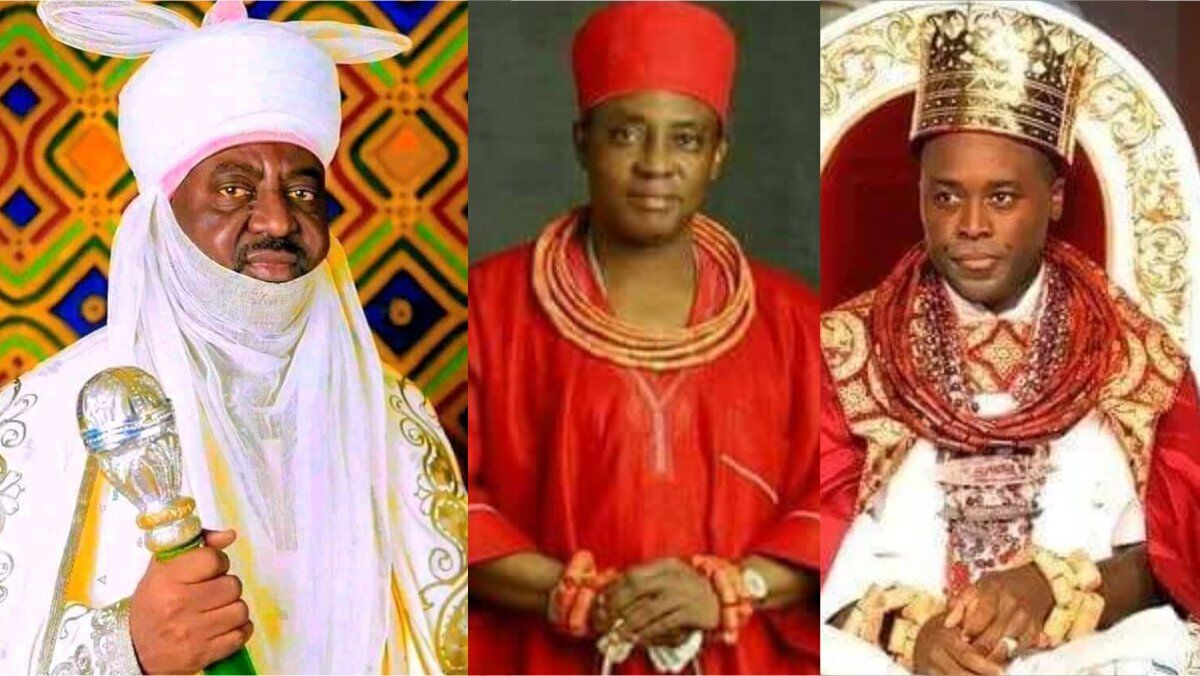A Comprehensive List Of Military Rulers In Nigeria

Nigeria's political landscape has been profoundly shaped by a series of military rulers throughout its history. These leaders have played pivotal roles in both the governance and turmoil of the nation, often stepping in during times of crisis. The list of military rulers in Nigeria reflects the complexities of the country's journey towards democracy, marked by coups, regime changes, and varying degrees of military influence.
The impact of military governance in Nigeria cannot be understated. From the early days of independence to the contemporary political scene, the presence of military rulers has often dictated the course of national policies and social dynamics. Understanding the list of military rulers in Nigeria provides insight into the challenges and achievements faced by the country over the decades.
This article delves into the significant figures who have led Nigeria through military rule, exploring their backgrounds, key policies, and the legacies they left behind. By examining this list, we can glean important lessons about leadership, governance, and the ongoing quest for democratic ideals in Nigeria.
Who Were the Key Military Rulers in Nigeria?
Nigeria has experienced a tumultuous history characterized by numerous military coups. The following is a notable list of military rulers in Nigeria:
- Major General Johnson Aguiyi-Ironsi (1966)
- General Yakubu Gowon (1966-1975)
- General Murtala Mohammed (1975-1976)
- General Olusegun Obasanjo (1976-1979)
- General Muhammadu Buhari (1983-1985)
- General Ibrahim Babangida (1985-1993)
- General Sani Abacha (1993-1998)
- General Abdulsalami Abubakar (1998-1999)
What Were the Major Milestones During Military Rule?
The era of military rule in Nigeria is marked by significant events that shaped the country. Some of these milestones include:
- The Nigerian Civil War (1967-1970)
- The establishment of the Structural Adjustment Program under Babangida in the late 1980s
- The transition to civilian rule initiated by Abacha
- The eventual return to democracy in 1999
What Impact Did Military Rulers Have on Nigeria's Governance?
Military rulers in Nigeria wielded considerable power, often sidelining democratic institutions. Here are some impacts:
- Suppression of political dissent and civil liberties
- Implementation of various economic policies, some of which had long-term repercussions
- Promotion of corruption and mismanagement in governance
- Influence on Nigeria's international relations and military alliances
How Did Each Military Ruler Shape Nigeria's Political Landscape?
Each military ruler brought a unique approach to governance, affecting Nigeria's political dynamics:
| Military Ruler | Tenure | Key Policies/Actions |
|---|---|---|
| Major General Johnson Aguiyi-Ironsi | 1966 | Attempted to unify Nigeria but was overthrown shortly after. |
| General Yakubu Gowon | 1966-1975 | Led Nigeria during the Civil War and focused on reconstruction. |
| General Murtala Mohammed | 1975-1976 | Initiated reforms aimed at combating corruption. |
| General Olusegun Obasanjo | 1976-1979 | Transitioned Nigeria to civilian rule. |
| General Muhammadu Buhari | 1983-1985 | Implemented strict anti-corruption measures. |
| General Ibrahim Babangida | 1985-1993 | Introduced Structural Adjustment Program. |
| General Sani Abacha | 1993-1998 | Known for human rights abuses and corruption. |
| General Abdulsalami Abubakar | 1998-1999 | Oversaw the transition back to civilian rule. |
What Lessons Can Be Learned from Military Rule in Nigeria?
The legacy of military rule in Nigeria offers critical lessons for future governance:
- The importance of civil governance and rule of law
- Understanding the dangers of absolute power
- Recognizing the need for accountability and transparency in leadership
How Has Nigeria Transitioned to Civilian Rule?
The transition to civilian rule in Nigeria began in the late 1990s, culminating in the 1999 elections. This process involved:
- Negotiations among political parties and military leaders
- Establishment of a new constitution
- Engagement of civil society in the democratic process
What Role Do Military Rulers Play in Modern Nigerian Politics?
Even with the return to civilian rule, the influence of past military rulers lingers in contemporary politics. Their legacies continue to shape political discourse, and some have returned to politics post-military rule. Understanding this connection is crucial for comprehending Nigeria's ongoing political evolution.
Conclusion: Reflecting on the List of Military Rulers in Nigeria
The list of military rulers in Nigeria presents a narrative of power, conflict, and resilience. By examining the lives and impacts of these leaders, we gain a comprehensive understanding of Nigeria's complex history and its ongoing journey towards a stable and democratic future. The lessons learned from military governance are invaluable in shaping the next generation of leadership in Nigeria.
ncG1vNJzZmivp6x7o77EnKKepJxjwqx7xJyfqJyRnrm6fZRoo6KrpGK8p3nMoqOirJGnxm6%2B1KWcq6tdnrtuusignKuhkWO1tbnL